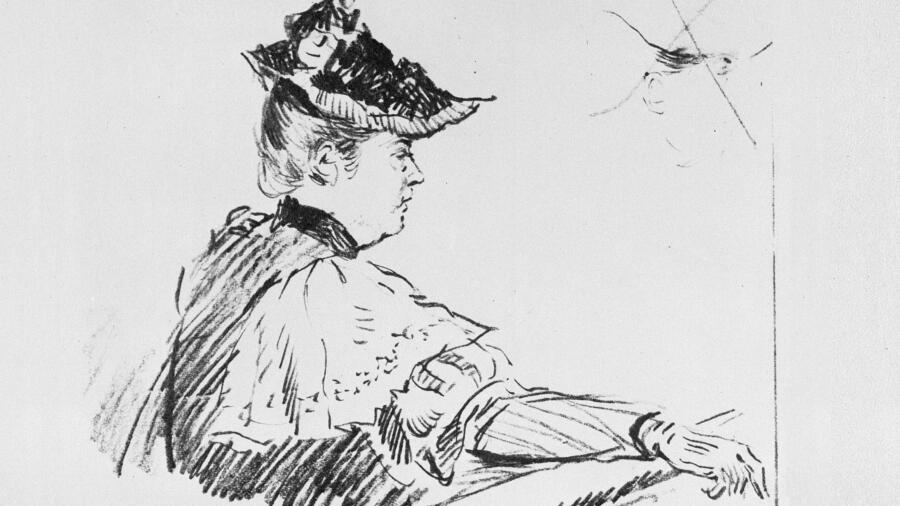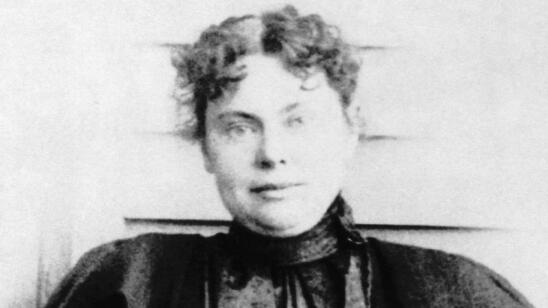“Lizzie Borden took an axe/And gave her mother forty whacks/When she saw what she had done/She gave her father forty-one,” goes the quippy jump-rope rhyme dedicated to the controversial Victorian woman.
On August 4, 1892, Lizzie Borden’s father Andrew and stepmother Abby were found mutilated in their house in Fall River, Massachusetts, having been savagely struck 10 or 11 and 19 times respectively (the rhyme got it wrong) with a hatchet-like weapon. Local policemen soon spotted contradictions and inconsistencies in the testimony of daughter Lizzie, who was suspiciously nonchalant. They put her behind bars seven days later, charged her with the murders and released her 10 months later, after a jury found her not guilty.
Yet, to this day, Lizzie Borden still has a reputation as a well-to-do woman who managed to get away with murder.
A&E True Crime spoke with Erika Mailman, author, journalist and expert on the Lizzie Borden case, having recently released a historical novel “The Murderer’s Maid,” which tells the story from the point of view of Bridget Sullivan, Borden’s maid.
You believe Lizzie Borden was the perpetrator of her parents’ murders. There have been a lot of theories about a possible motive. Which one do you subscribe to?
Lizzie was fueled by a complex amalgam of motives. She lived in an era when women were not supposed to go anywhere without a chaperone. She despised her father’s miserly control of her life, she had just come back from a Grand Tour of Europe where she’d seen many fine things she wanted. [I believe] she was greedy, unhinged and demoralized. Seeing her sister, who was nearly a decade older (Lizzie was 32 at the time of the murders) still living in the house was a stark example of what she could look forward to: sewing in small rooms and visits with friends of equally-lowered circumstances.
[Watch Lizzie Borden: A Woman Accused on A&E Crime Central.]
That helplessness of being trapped—even literally, within one’s constrictive corset and undergarments—may have bloomed into something more sinister, like rage. I don’t think it’s a coincidence that the murders took place soon after Andrew sold the family horse, one of her methods of getting around town.
But why would a “prim and proper” Victorian woman resort to butchering her parents with an axe instead of just pouring poison in their tea?
I think she did try to poison them. One day before the murder, Abby had gone to the doctor across the street and told him she thought someone was trying to poison them. That same day Lizzie went to a druggist and tried to purchase prussic acid (hydrogen cyanide). She was refused. The next day, we have the hatchet murders. My guess of the sequence of events was: homemade poison, trying to buy real poison, giving up and using a tool she found in the barn.
Do you find any relationship between Borden’s rumored crimes and the homicides of other famed Victorian-era female killers, for instance, Belle Gunness?
Gunness was a true serial killer. She killed as many as 40 people, including her own children. Her murders seemed less about the victims than about the killing, whereas for Lizzie it’s clear that these two people [Andrew and Abby] were very much the ones she wanted dead. Yet, one thing she and Lizzie have in common is the motivation of greed.
Gunness killed people for their money and it’s possible Lizzie also murdered for inheritance money, to live the grand lifestyle she craved.
There’s been speculation that Borden and her father may have had an incestuous relationship, which may have been a motive.
That’s definitely a powerful catalyst for violence. There’s definitely an incest theory with the Borden narrative. Lizzie’s uncle said some coded things during the trial about how Lizzie and her dad were too close.
When I spent the night at the Lizzie Borden Bed and Breakfast Museum, the tour guide pointed out nail holes in the doorjamb, where Lizzie had nailed the door shut between her bedroom and Andrew and Abby’s. She had also positioned the bed to block the door. The tour guide said several visitors over the years had pointed to these two facts as ‘textbook’ evidence of molestation. If it’s true, then perhaps it makes sense why Abby was killed as well, for failing to protect Lizzie from these despicable acts.
Why do you think Borden was acquitted relatively quickly?
I think it was because she was a woman of a particular socioeconomic status. How do you go from serving on the Fruit and Flower Mission to pulverizing your stepmother’s head?
Female murderers were so rare back then that the arrest warrant was a preprinted boilerplate that used only male pronouns. Borden’s arrest warrant survives, with all the reference to “him” crossed out and handwritten as “her,” and a little “s” added before the “he.”
Related Features:
What Really Happened to Belle Gunness, Serial Killer and Butcher of Men?
Belle Gunness: The Early 20th Century Female Serial Killer You Probably Haven’t Heard Of


